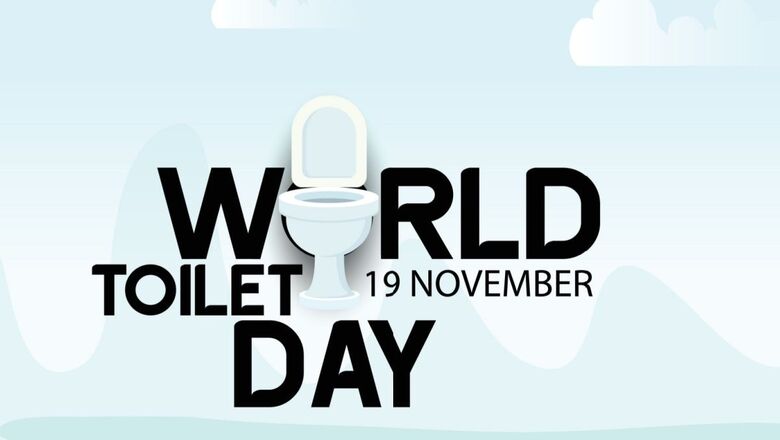
333
views
views
World Toilet Day is celebrated on 19th November each year to inspire and raise awareness to tackle global sanitation crises.
World Toilet Day, observed on 19th November each year, serves as a global reminder of the pressing need to address sanitation challenges. Established by the World Health Organization in 2001, this year’s theme, “Accelerating change,” emphasizes the urgency to propel advancements in global sanitation. In this context, India has been a beacon of progress, notably through initiatives like the Swachh Bharat Mission.
- Celebrating Progress:Over the years, India has witnessed significant strides in sanitation. Vikas Bagaria, Founder & CEO, Pee Safe, says, “The Swachh Bharat Mission, a national campaign, has played a pivotal role in raising awareness, building infrastructure, and educating the masses on the critical importance of hygiene and sanitation for health and livelihoods.” By 2019, the number of people without access to toilets had markedly decreased by an estimated 450 million, according to Unicef Data.
- The Impact of Swachh Bharat Mission:The massive construction of toilets in both rural and urban areas has underscored the importance of maintaining adequate toilet hygiene and sanitation. While acknowledging the progress made, the focus now shifts to sustaining these achievements. The emphasis should be on cultivating healthy toilet hygiene habits, which not only ensures the usability of these facilities but also mitigates the risk of diseases.
- Challenges and Opportunities:Open defecation, historically prevalent among the poorest citizens, has posed significant health risks. Lack of regular handwashing and microbial contamination of water have contributed to diarrheal and waterborne diseases, leading to a substantial number of child deaths. The mission ahead involves not only maintaining the open defecation-free status but also increasing awareness and building habits like regular handwashing.
- Promoting Basic Hygiene Habits:Ensuring access to clean and hygienic toilet facilities, particularly in urban areas, offices, trains, and highways, is crucial. Beyond access, there is a need to instill basic hygiene habits. Encouraging practices such as flushing toilets, keeping seats clean, and thorough handwashing can significantly reduce the risk of diseases and infections.
- Educating the Future:Teaching toilet hygiene to young children, similar to hand hygiene, is essential for instilling lifelong habits. By incorporating these practices into their routines, we can pave the way for a healthier future.
- Innovative Solutions for Safer Toilets:Apart from awareness and habits, making people aware of products such as toilet seat sanitizer sprays, toilet seat covers, and stand-and-pee devices is crucial. These products address specific concerns, enabling individuals to use public toilets with ease while minimizing the risk of infections.
- A Holistic Approach:As we mark World Toilet Day, let us not only celebrate the progress made but also renew our commitment to addressing the remaining challenges. A holistic approach that combines infrastructure development, hygiene education, and the promotion of innovative solutions will lead to sustained advancements in sanitation, ensuring a healthier and more hygienic future for all.
















Comments
0 comment